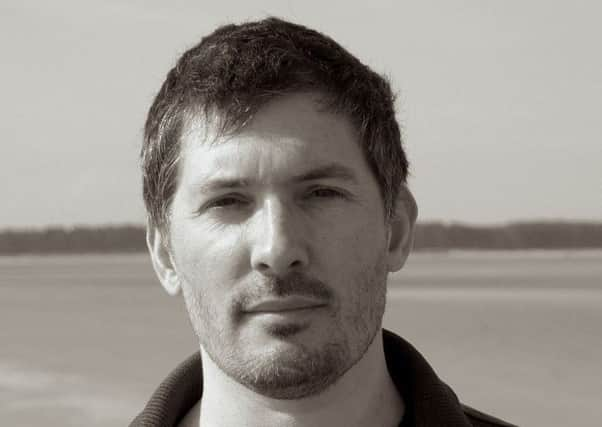Well versed


He’s been described as one of the most exciting poets of his generation and this year Carlisle-born Jacob Polley excelled himself, winning the prestigious TS Eliot Award in April for his latest collection Jackself.
Polley has been shortlisted twice before, the first time for his debut collection Brink, published in 2003, and more recently for The Havocs in 2012. In between there was another collection Little Gods in 2006. And he has also proved he can work in a longer form. His debut novel Talk of the Town – a raw and gritty combination of coming of age story and murder mystery set in Carlisle in the summer of 1986 – received glowing reviews and won the 2010 Somerset Maugham Award.
Advertisement
Hide AdAdvertisement
Hide AdJackself, however, is quite different from Polley’s previous poetry collections in that it is linked by an overarching narrative, telling the story of the title character, his friend Jeremy Wren and various other members of their gang.
It is a beguiling blend of folklore, nursery rhyme and cautionary tale. Fellow poet Ruth Padel, chair of the TS Eliot Award judging panel, called it “a firework of a book; inventive, exciting and outstanding in its imaginative range and depth of feeling”.
Polley says he didn’t set out to write a narrative verse collection but that he did allow himself to experiment and push at boundaries. He recognised something unusual in the first poem he wrote featuring Jackself. “It didn’t feel like a stand-alone poem so I started writing more. I just wanted to see where it went really. I wrote each poem without any intention but with a sense that I wasn’t going to control what was in them.”
This spirit of experimentation extends to even the layout of the words on the page – with jagged line placing and lots of white space. “You write a poem word by word, line by line and you can often find yourself having second thoughts. I was determined in some ways not to do that and just see what happened,” says Polley. “By the time I had written a few of these I thought maybe it was going to be a short sequence of poems but I just kept going.”
Advertisement
Hide AdAdvertisement
Hide AdThe folkloric feel to the poems is, he says, entirely unplanned. “They were improvised and just flowed wherever they went. When I am in the midst of writing I tend not to analyse that stuff. In the moment I am reaching for what’s relatable, what’s interesting or exciting. It’s not that I grew up in a folk environment, but I read a lot and I think it is to do with what that reading has laid down, and listening to people and to stories. I was always interested in stories.”
Polley continued to write the poems and over the course of three or four years, in between other projects and his teaching at Newcastle University, the book took shape. He was delighted to be shortlisted for the TS Eliot Award and went along to the ceremony with no expectation of winning. “I invited my sister to come with me and she said when the judges made the announcement I looked like I was going to fall over. I was absolutely stunned.”
Jacob Polley will be appearing at Ryedale Book Festival, Scampston Hall on June 25. www.ryedalebookfestival.com